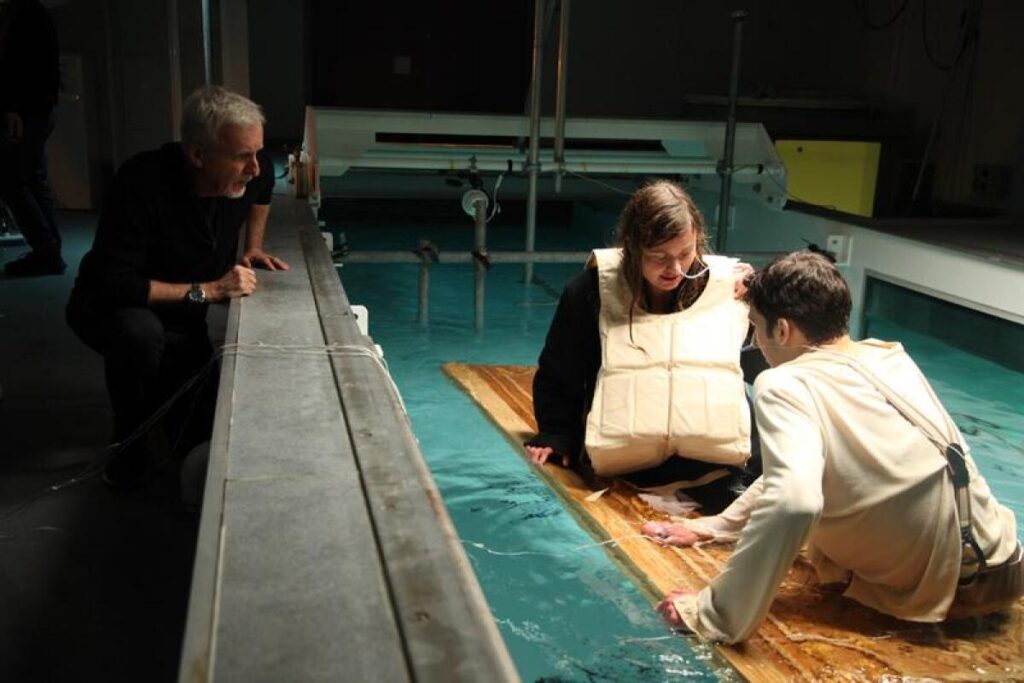Maybe his heart will go on?
“Titanic” director James Cameron finally conceded that Jack “might have” survived the sinking of the cruise ship if he shared Rose’s makeshift raft, settling a decades-long debate among some fans of the blockbuster 1997 film.
Moviegoers have long been vexed by the emotional final moments of the 11-time Oscar-winning movie, when Leonardo DiCaprio’s character sacrifices himself to frigid waters (and hypothermia) to safeguard his lady love, played by Kate Winslet.
Viewers have long believed that Jack didn’t have to die in Cameron’s fictional retelling of the 1912 tragedy.
Dogged by the rampant theory, the film’s writer-director-producer put it to the test for an upcoming NatGeo special, “Titanic: 25 Years Later With James Cameron,” enlisting scientists and stuntpeople to simulate the conditions that ended the life of his iconic cruise-ship passenger. (Cameron previously hosted a similar special for the network on the film’s 20-year anniversary.)
In “Titanic: 25 Years Later With James Cameron,” the director checks in on Josh Bird and Kristine Zipfel during a test on the effects of hypothermia.
(Spencer Stoner / National Geographic)
The hypothesis has been tested before, notably in a 2012 episode of Discovery Channel’s “MythBusters,” but it’s the first time the groundbreaking “Avatar” filmmaker has done it himself.
The NatGeo special shows Cameron re-creating the controversial scene in a laboratory-pool setting and also consulting with a hypothermia expert. In a clip from the special that aired Thursday on ABC’s “Good Morning America,” Cameron and his team are seen testing out various positions and permutations that might help Jack make it out alive — specifically with Rose giving up some real estate on the debris she used to stay afloat above the ice-cold water.
“Out of the water, with violent shaking helping him. He could’ve made it … pretty long. Like hours,” the special-effects maestro says of one outcome, assuming the characters hadn’t been exhausted by hours of freezing shipwreck.
Another scenario, factoring in the physical strain the lead characters endured after their ship hit a glacier, and with Rose also offering Jack her life vest for insulation, ultimately led Cameron to believe there was a chance Jack could have survived.
“He’s stabilized, he got into a place where that if we projected that out, he just might have made it,” the director adds. “Jack might’ve lived. But there’s a lot of variables. I think his thought process was, ‘I’m not going to do one thing that jeopardizes her [survival],’ and that’s 100% in character.”
Cameron alluded to the experiment last December, telling the Toronto Sun that he also had forensic analysis done on a replicated version of the famous moment, noting that he wanted to put the debate to rest “and drive a stake through its heart once and for all.” But at the time, he insisted that Jack likely wouldn’t have survived.
Leading into the remastered theatrical release of “Titanic” next week, “Titanic: 25 Years Later With James Cameron” airs Sunday on NatGeo and begins streaming Monday on Hulu.
The special also features the story of how the long-lost ship was found, historical questions about how it sank and debates about whether additional lifeboats on board would have saved more lives.

